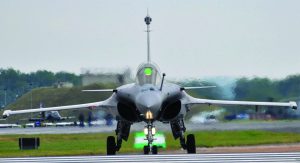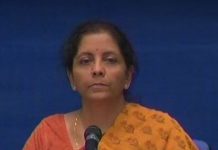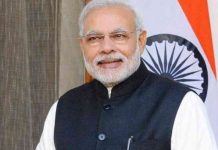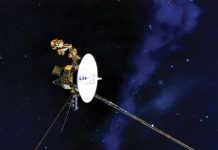 Though the NDA government has remained in controversies for its decisions like demonetisation and roll out of the Goods and Services Act, it had never been charged with corruption. The significance of the Rafale deal is that this is the first major corruption charge against the government and the opposition has found an issue which it could drum up during the election year. Although corruption charges have not been substantiated with any hard evidence, the issue is likely to resonate all through the election campaign unless the government comes out with convincing replies.
Though the NDA government has remained in controversies for its decisions like demonetisation and roll out of the Goods and Services Act, it had never been charged with corruption. The significance of the Rafale deal is that this is the first major corruption charge against the government and the opposition has found an issue which it could drum up during the election year. Although corruption charges have not been substantiated with any hard evidence, the issue is likely to resonate all through the election campaign unless the government comes out with convincing replies.
There are at least two aspects of the deal which require clarifications and explanations to the general public. One is that the price of each jet has been increased by a whopping 1000 crore per aircraft to about 1600 crore. The massive increase sounds unbelievable and unrealistic but the opposition has produced two documents to bolster its claim. The first document stated that the Rafale aircraft price was 670 crore per aircraft. This was stated by Minister of State for Defence in the Lok Sabha on November 8, 2016, while answering a question on the acquisition of fighter aircraft.
He had stated, and it is part of the official proceedings of Lok Sabha, that “an inter-governmental agreement with the Government of French Republic was signed on 23 September 2016 for the purchase of 36 Rafale aircraft along with requisite equipment, services and weapons. Cost of each Rafale aircraft is approximately 670 crore and all the aircraft would be delivered by April 2022”.
The other document is a press release by the Reliance Defence and Aerospace, which is the Indian partner of the French manufacturer of Rafale. In a press release dated February 16, 2017, it had stated that the total price of the deal was about 60,000 crore for 36 aircraft or 1,660 crore per aircraft.
The second significant aspect of the deal, which was signed by French prime minister Emmanuel Macron and his Indian counterpart Narendra Modi in April 2015 in Paris, was that the earlier plan was to purchase 126 aircraft but the number was reduced to 36 in the revised deal. The charge is that it was done without consulting the Air Force or the Defence ministry. The actual requirements of the Air Force is much higher as its depleting fleet has not been strengthened for a long time.
The third controversy relating to the deal is the involvement of a newly constituted private company, Reliance Defence Ltd, belonging to Anil Ambani. The earlier deal had public sector unit Hindustan Aeronautics Limited as part of negotiations for offset contract. The decision to drop the established and tested HAL in favour of the new Reliance Company was indeed baffling. The Company was floated barely two weeks before the deal was signed. The government has, however, defended this aspect by stating that it had nothing to do with the partnership as it was a decision of the Dassault Aviation Company which manufactures Rafale fighter aircraft.
Congress, which has been hit in the past by several scams like the infamous Bofors deal, has been in the forefront of the attack on the Rafale deal. It took up the issue both inside and outside the Parliament and described it as the “mother of all scandals”. While several parties belonging to the UPA kept away from the protests, it found support from the Left parties and the Aam Aadmi Party.
The attack was bolstered by two former ministers who had served in the Atal Behari Government-Yashwant Sinha and Arun Shourie, and a leading Supreme Court lawyer Prashant Bhushan. They said there were no additional add-ons and yet the country will pay 1,000 crore more per plane as compared to the earlier deal. They said such an agreement between Reliance Defence and Dassault Aviation, which makes Rafale jets, should have come after governmental approval.
Former union minister Sinha, who had been openly criticising the government on various issues, said Bofors “pales into insignificance” when compared to this “scam”. He and Shourie said statements of then foreign secretary S Jaishankar and Defence Minister Manohar Parrikar suggest that none of them was aware of the new deal to buy 36 jets, against 126 aircraft as per a Request for Proposal issued in 2007, for which Dassault had been selected as it was the lowest bidder.
They also said there were no additional add-ons as per Indian specifications, as claimed by the government, compared to the original RFP. They quoted the joint statement by India and France on April 10, 2015, which mentioned that the 36 jets to be delivered by Dassault “and associated systems and weapons would be delivered on the same configuration as had been tested and approved by the Indian Air Force”.
Shourie described it an “enormous scandal which jeopardises national security” and asked the government to make details of the deal public. Pointing out that offset guidelines of the government issued on April 1, 2016, mention that “all offset proposals will be processed by the Acquisition Manager and approved by Raksha Mantri, regardless of their value”, he said Dassault’s deal with Reliance Defence could not have happened “without a nudge and a wink” from the government.
A joint statement issued by the three said, “Could an experienced manufacturer like Dassault have picked a company that had no experience whatsoever of manufacturing aircraft…without the approval from the government?” It said a “private party which has had absolutely no experience in manufacturing aerospace and defence equipment has been handed an enormous financial benefit.” They demanded an audit by Comptroller and Auditor General.
Surprisingly, barring a couple of newspapers, the media has ignored the issue. The press conference by the three was not covered by large sections of the media while some pushed it to inside pages. One of the prominent English dailies gave the headline to a two column report on the press conference, which also included the statement of Union finance minister Arun Jaitley, that read: “Jaitely rubbishes wild allegations on Rafale deal” without giving any benefit of doubt to those making the allegations.
Jaitley said in a blog post that there “is not a grain of truth in the wild allegations repeated today nor anything substantiating in the purported facts and voluminous documents marshalled to corroborate the baseless accusations”. He went on to say that the “allegations constitute nothing but reprocessed lies by forces increasingly desperate to prove their relevance”.
He said, “those raising alarm about the alleged danger to national security ought to realise their responsibility and refrain from politicising for narrow individual ends those very matters pertaining to the defence of the nation that were consistently ignored by them and by those with whom they sympathise”.
However, this explanation is not adequate and the government needs to come out with more details and clarifications on the deal while keeping in mind national security aspects. The Congress and other opposition parties are certain to milk the deal to tarnish the image of the government. There is no doubt a confidential clause between the Indian and the French governments which must be respected but the clearing of certain doubts would help the government in defending the deal.
letters@tehelka.com












